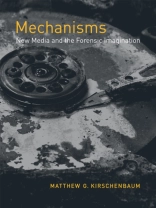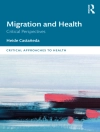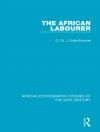A new "textual studies" and archival approach to the investigation of works of new media and electronic literature that applies techniques of computer forensics to conduct media-specific readings of William Gibson’s electronic poem "Agrippa, " Michael Joyce’s Afternoon, and the interactive game Mystery House.In Mechanisms, Matthew Kirschenbaum examines new media and electronic writing against the textual and technological primitives that govern writing, inscription, and textual transmission in all media: erasure, variability, repeatability, and survivability. Mechanisms is the first book in its field to devote significant attention to storage-the hard drive in particular-arguing that understanding the affordances of storage devices is essential to understanding new media. Drawing a distinction between "forensic materiality" and "formal materiality, " Kirschenbaum uses applied computer forensics techniques in his study of new media works. Just as the humanities discipline of textual studies examines books as physical objects and traces different variants of texts, computer forensics encourage us to perceive new media in terms of specific versions, platforms, systems, and devices. Kirschenbaum demonstrates these techniques in media-specific readings of three landmark works of new media and electronic literature, all from the formative era of personal computing: the interactive fiction game Mystery House, Michael Joyce’s Afternoon: A Story, and William Gibson’s electronic poem "Agrippa."
Matthew G. Kirschenbaum
Mechanisms [PDF ebook]
New Media and the Forensic Imagination
Mechanisms [PDF ebook]
New Media and the Forensic Imagination
购买此电子书可免费获赠一本!
语言 英语 ● 格式 PDF ● 网页 320 ● ISBN 9780262302746 ● 出版者 The MIT Press ● 发布时间 2012 ● 下载 3 时 ● 货币 EUR ● ID 8105270 ● 复制保护 Adobe DRM
需要具备DRM功能的电子书阅读器












